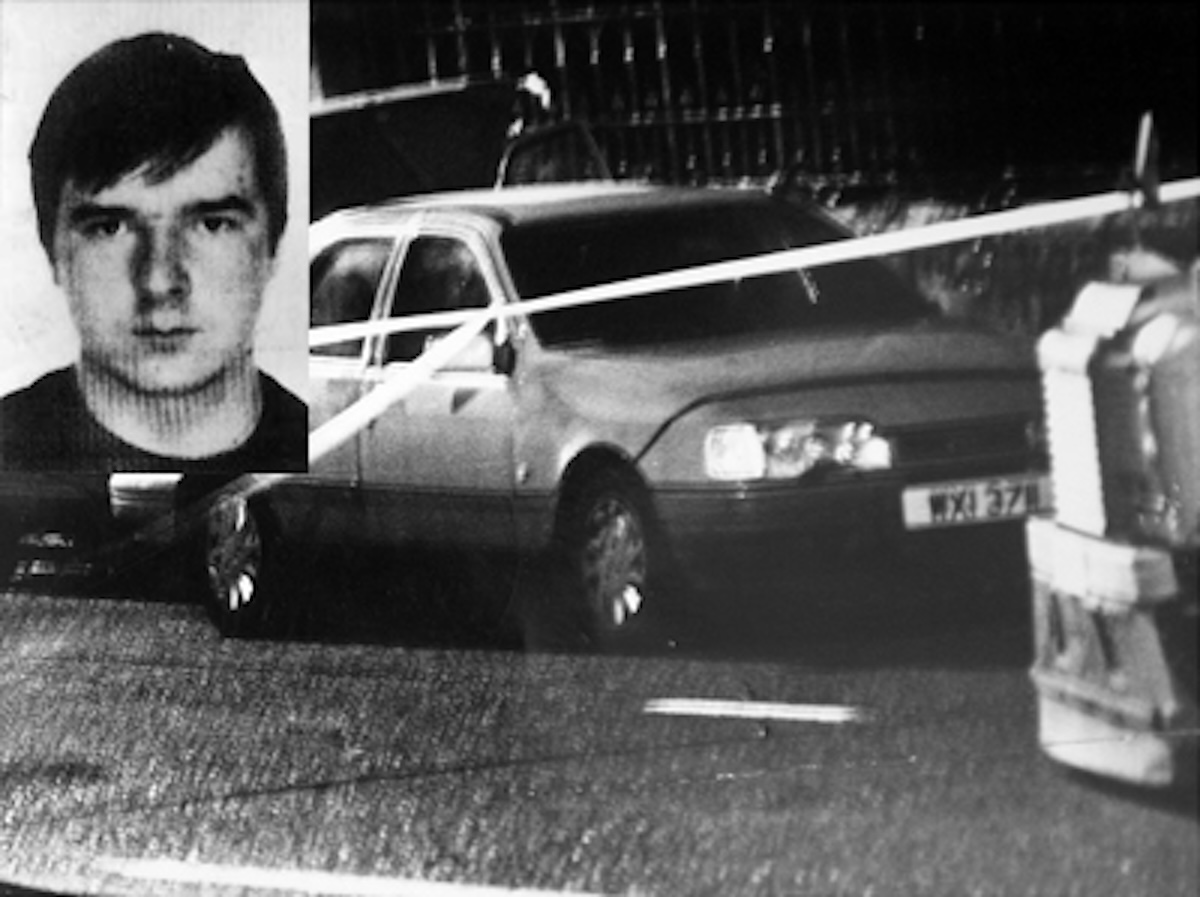
The British government’s new laws on dealing with the conflict “legitimises” the killing of Irish civilians by members of the Crown Forces, the High Court heard on Wednesday.
It was believed that the real aim of the legislation is to protect the British forces from the consequences of their action.
Counsel for the mother of an IRA Volunteer shot dead by the RUC police also warned police who allegedly perjured themselves and destroyed evidence in the case would wrongly avoid prosecution.
Pearse Jordan (pictured) was shot by an RUC man after he had been stopped in a car in west Belfast in November 1992.
In 2016, a judge said two RUC members who gave inconsistent, contradictory and unconvincing evidence at an inquest may have perverted the course of justice and committed perjury.
With the ‘Northern Ireland Troubles (Legacy and Reconciliation)’ Act now offering a conditional amnesty to those who confess to conflict-related crimes, the pair may never face prosecution.
Teresa Jordan, who has fought to establish the full circumstances surrounding her son’s killing, is one of those challenging the legislation.
Her barrister claimed the possible blanket immunity was on offer “just because the government thinks it’s too inconvenient to pursue these issues”.
Karen Quinlivan KC told the court: “It is an affront to Mrs Jordan that police officers who, according to the coroner, destroyed evidence relating to the death of her son and perjured themselves should not face any charges.”
Alleging a further breach of the bereaved mother’s rights, counsel contended: “She persistently campaigned for justice for her son.
“Police officers took upon themselves to destroy material evidence relating to the circumstances in which her son died which would have enabled her to get to the truth.
“That is an interference with her private life and family life.”
During her submissions Ms Quinlivan echoed previous claims that the Legacy Act’s real objective is to shield those who served in the Crown Forces.
“Veterans don’t have the right to kill people, commit crime and pervert the course of justice,” she said.
The protection of former British soldiers amounted to unlawful discrimination against a national minority, the court heard.
Ms Quinlivan added: “How much more suspect do you need to get, that you legitimise the killing of people in this jurisdiction by people from another jurisdiction and you put in place legislation designed to ensure that protection.”
![[Irish Republican News]](https://republican-news.org/graphics/title_gifs/rn.gif)
![[Irish Republican News]](https://republican-news.org/graphics/title_gifs/harp.gif)

